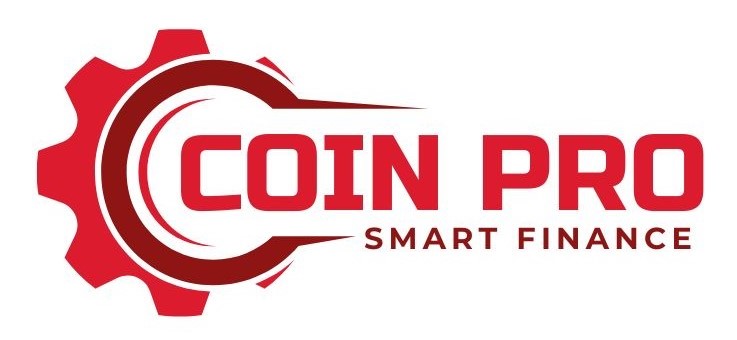The Evolution of DAOs: Are They the Future of Governance?
Introduction
Decentralized Autonomous Organizations (DAOs) have emerged as a revolutionary concept in the world of governance and decision-making. Built on blockchain technology, DAOs aim to create democratic, transparent, and efficient organizational structures without the need for centralized authority. Since their inception, DAOs have evolved significantly, raising questions about their potential as the future of governance in various domains, including finance, corporate management, and even national politics. This article explores the historical evolution of DAOs, their benefits and challenges, and their potential role in shaping the future of governance.
The Origins of DAOs
The concept of DAOs dates back to the early days of blockchain technology. The idea was to create organizations that function autonomously, governed by smart contracts on a decentralized network.
The DAO: A Pioneering Experiment
The first major attempt at creating a DAO was aptly named The DAO, launched in 2016 on the Ethereum blockchain. Designed as a decentralized venture capital fund, The DAO raised over $150 million in Ether, making it one of the largest crowdfunding projects at the time. However, due to a vulnerability in its smart contract code, The DAO was exploited, resulting in the loss of millions of dollars. This incident led to a contentious hard fork in Ethereum, splitting the network into Ethereum (ETH) and Ethereum Classic (ETC). Despite its failure, The DAO paved the way for future innovations in decentralized governance.
The Growth and Evolution of DAOs
Following the collapse of The DAO, blockchain developers and communities worked to refine the concept, addressing security flaws and governance inefficiencies. Today, DAOs have evolved significantly, becoming more sophisticated and widely adopted.
The Rise of DAO Governance Models
Modern DAOs operate using various governance models, primarily revolving around token-based voting systems. Some common governance structures include:
- Token-weighted voting: Members vote based on the number of governance tokens they hold.
- Quadratic voting: Reduces the influence of large stakeholders by making votes more expensive for those with more tokens.
- Reputation-based governance: Voting power is based on contributions and engagement rather than token holdings.
Key Sectors Adopting DAOs
DAOs are now being utilized in multiple sectors, including:
- DeFi (Decentralized Finance): Projects like MakerDAO and Uniswap use DAOs to govern lending protocols and decentralized exchanges.
- Media and Content Creation: Platforms like BanklessDAO promote decentralized content creation and funding.
- Venture Capital and Investments: DAOs like MetaCartel Ventures allow collective investment decisions.
- NFTs and Digital Art: DAOs manage digital art curation and sales, such as FlamingoDAO.
- Social and Political Movements: Organizations like KlimaDAO focus on climate action through decentralized governance.
Advantages of DAOs
DAOs offer several advantages over traditional governance models, making them an attractive alternative for various applications.
Transparency and Trust
Blockchain technology ensures that all transactions and decisions are recorded on a public ledger, increasing transparency and trust among stakeholders. Unlike traditional organizations where decision-making can be opaque, DAOs provide clear and immutable records of governance actions.
Decentralization and Democratization
DAOs eliminate centralized control, distributing power among all participants. This democratization reduces the risk of corruption and enhances collective decision-making, allowing communities to have a direct say in governance.
Efficiency and Automation
Smart contracts enable automated execution of decisions, reducing bureaucracy and administrative costs. Traditional governance structures often involve lengthy approval processes, whereas DAOs streamline operations through pre-defined rules encoded in smart contracts.
Global Participation
Unlike traditional organizations bound by geographical limitations, DAOs operate on a global scale, allowing people from around the world to participate in governance and decision-making processes.
Challenges and Limitations of DAOs
Despite their potential, DAOs face significant challenges that hinder their widespread adoption.
Security Risks
As seen in the case of The DAO hack, smart contracts are vulnerable to exploitation if not properly audited. Even with advancements in security, bugs and vulnerabilities remain a major concern for DAOs.
Governance Inefficiencies
While DAOs promote decentralization, decision-making can become slow and inefficient due to the complexities of reaching consensus. Token-based voting can also lead to centralization if a small group accumulates a large portion of governance tokens.
Legal and Regulatory Uncertainty
Many jurisdictions lack clear regulations regarding DAOs, making their legal status ambiguous. Governments and regulators struggle to define the legal framework for decentralized organizations, posing risks for DAO participants.
Participation and Voter Apathy
Engaging members in governance decisions remains a challenge, as many token holders do not actively participate in voting. This voter apathy can lead to a small minority making key decisions on behalf of the majority, undermining the democratic nature of DAOs.
The Future of DAOs in Governance
Despite challenges, DAOs continue to gain traction, with several developments pointing toward their potential role in the future of governance.
Hybrid Governance Models
One potential evolution of DAOs is the integration of decentralized and traditional governance models. Hybrid approaches can combine the efficiency of DAOs with regulatory compliance, offering a balanced solution for corporations and institutions.
DAOs in Corporate and Public Governance
As DAO technology matures, businesses and governments may adopt decentralized governance structures. Corporations could implement DAOs for shareholder voting and decision-making, while governments might explore blockchain-based voting systems for elections.
Enhanced DAO Tooling and AI Integration
Advancements in DAO infrastructure, including improved smart contract security and AI-powered decision-making, could address governance inefficiencies. AI integration may enable automated dispute resolution and optimize voting processes.
Conclusion
DAOs represent a significant shift in how organizations and communities make decisions, leveraging blockchain technology to create transparent, decentralized, and efficient governance systems. While they are still evolving and face considerable challenges, their potential to reshape governance in finance, corporate management, and even politics is undeniable. As technology and regulatory frameworks improve, DAOs could indeed become a fundamental pillar of governance in the digital age. Whether they will fully replace traditional governance structures remains uncertain, but their influence is set to grow in the coming years.


